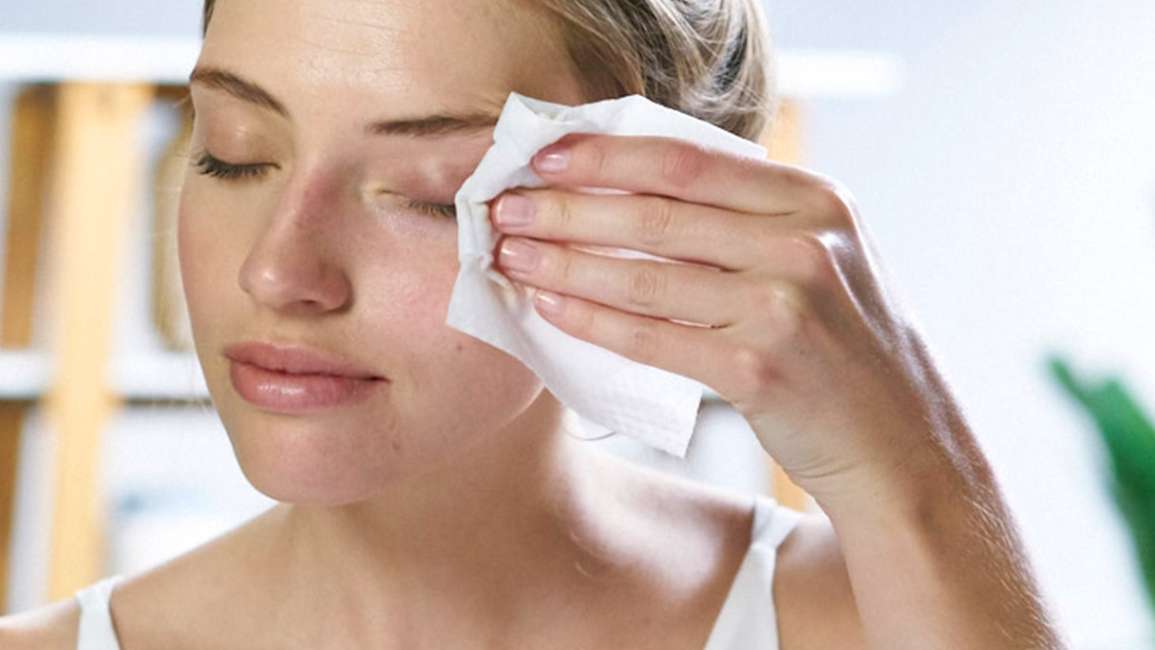
Looking after your skin barrier is the key to healthy, vibrant skin
It may not look like it on the surface, but your skin is constantly hard at work; the toughest job, though, is of the uppermost layer, the skin barrier. Much like a security guard for your skin, the barrier is there to stop potential problems passing through and to protect what lies within - and it’s the weakness of this shield that is the underlying cause of sensitive skin.
A thin, weak or damaged skin barrier allows irritants in, or irritates more easily - and so building up this surface layer could be the key to reducing skin sensitivity long term.
What is the skin barrier?
Your skin is the largest organ in your body. And it’s a complex organ, with seven layers that perform a variety of essential functions. The skin’s most important function is to keep harmful viruses and contamination out of your body. It does this with what’s known as the ‘skin barrier’, aka the stratum corneum. This outer layer of skin is the frontline bodyguard, protecting you against UV damage, pollution, toxic chemicals and infection.
What does a weak skin barrier mean?
There could be a number of reasons why you have a weak or thin skin barrier. As you age, the barrier starts to weaken. Pale skin is thinner than darker skin, which all pale-skinner people know, resulting in more rashes, redness, blushing and irritation. Also, if you are dehydrated, the ability of the skin to heal itself is impaired.
A weak skin barrier means that your skin doesn’t look as good. It will appear dry, dull and scaly; it will also wrinkle more easily. Chemicals can penetrate an impaired skin barrier, which can cause inflammation and a high level of sensitivity. If you’ve experienced stinging or redness from products, you’ll know what we mean. And, unfortunately, if you’ve had a reaction to a product, the barrier becomes compromised and opens the door to even more problems.
What can you do to strengthen your skin barrier?
The first step is to avoid steroid creams that are often prescribed for allergic reactions and eczema. They thin the skin even further, which removes the inflammation but increases the chances of further problems.
Back to basics
Take your skin routine back to the bare basics. Remove artificial foaming cleansers, toners and anything with alcohol or witch hazel, as these strip away protective skin oils. Also eliminate all scrubs and exfoliants, brushes and cloths, as abrasion creates micro-tears in the skin which further degrades the skin’s protective coating. Instead, use a soft flannel with a gentle, oil-based cleanser.
Switch to natural products
Use products with skin-building, positive ingredients. Some people swear by niacinamide and products that contain linoleic acid. These might work for you, but a more logical approach is to move to a natural skincare regime. We’ve written a guide about how to do this.
Be gentle and work with your skin, not against it
Keep an eye on the pH of the products you use. Optimal skin pH is about 5.5. If you use harsh cleansers on your skin, you’ll strip your skin of beneficial oils. Plus they make your skin pH too alkaline, which can lead to degradation of those all-important layers of skin barrier. Hot water strips the skin. Instead, clean your face with tepid water. More about maintaining the right skin pH.
Get into good skin habits
Move forward with better habits and healthy skin. Once you’ve built your skin barrier up, you need to maintain it by protecting against sun damage, free radicals and pollution. Also, now that you’ve overhauled your skincare, you should fuel your skin from the inside with lots of fresh fruit and vegetables - vitamins A, C and E are particularly good for skin. Be aware too that stress has a visible effect on skin, slowing down healing time and potentially weakening your skin barrier.
Consider taking a natural skin, hair and nails supplement. There are a range of formulas designed to nutritionally support the health of your skin. Also think about adding an omega fatty acid supplement to your daily plain, to help restore moisture and encourage optimal skin health.
Introduce new products one at a time
Find out what works for you. No two people are the same and what helps your friend may not do the same for you. It can be good to introduce new products one at a time, so that if you react to something, you’ll know what product it’s likely to be. You can’t fix a damaged skin barrier overnight, but with gentle care and patience it will get its act together again. This will help your skin remain youthful and look great for years to come.




Leave a comment
This site is protected by hCaptcha and the hCaptcha Privacy Policy and Terms of Service apply.